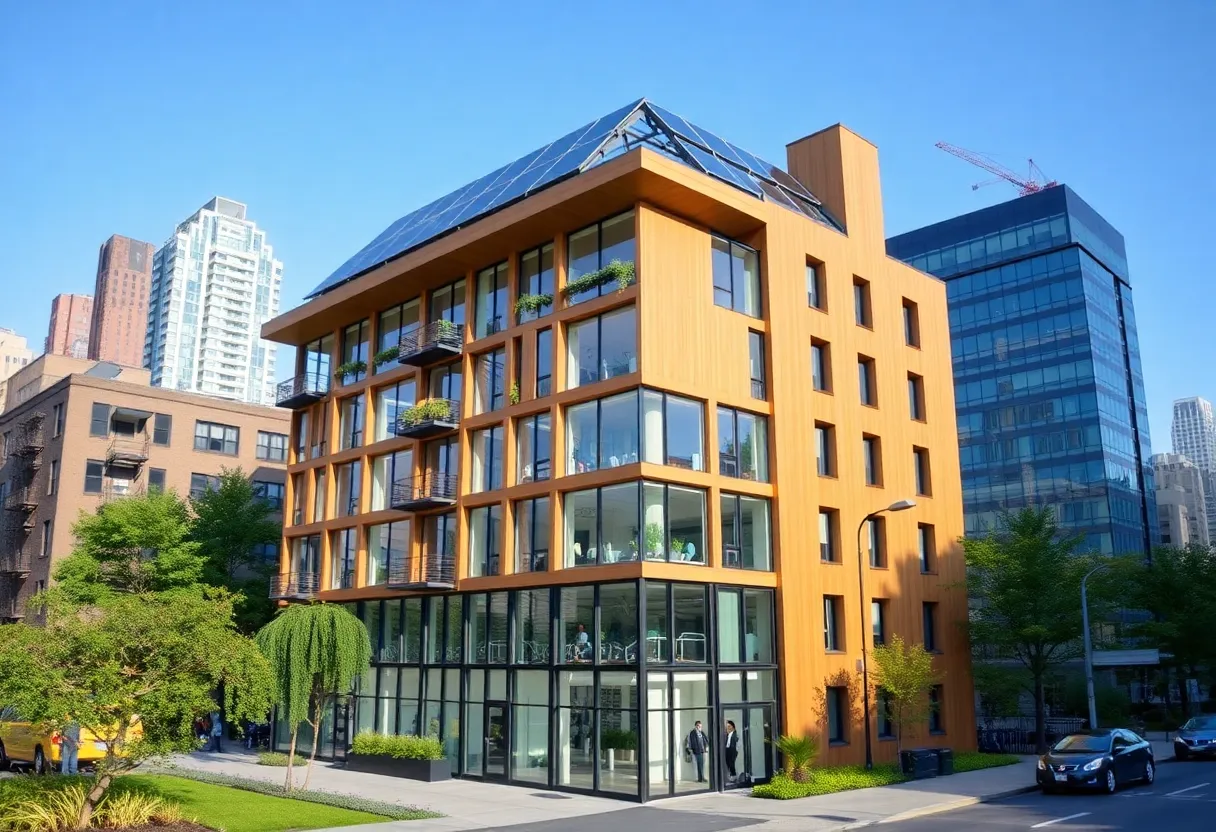News Summary
New York State has enacted the All Electric Buildings Act, requiring newly built single-family homes and low-rise buildings to use electric appliances, banning gas or oil. Effective in 2029, this legislation aims to reduce greenhouse gas emissions from the construction sector, which currently accounts for a significant portion of the state’s emissions. While the act is designed to encourage sustainability, it raises concerns about potential increased costs for construction and its impact on the energy grid. Exemptions apply for previously permitted projects, ensuring a transitional period for compliance.
New York State Approves All Electric Buildings Act Mandating Electrification
New York State has approved the All Electric Buildings Act, which mandates that all newly constructed single-family residences and low-rise buildings must utilize electric appliances, effectively prohibiting gas or oil services. The Building Code Council approved this legislation on July 25, 2025, marking a significant shift towards electrification in the construction sector. This full prohibition of fossil-fuel systems in new buildings is set to take effect in 2029, with certain exemptions in place.
The new regulations target all buildings that do not exceed seven stories in height, along with commercial spaces that occupy less than 100,000 square feet in conditioned floor area. However, projects that have submitted “substantially complete building permit applications” prior to December 31, 2025, will be exempt from these requirements. Notably, existing buildings and those undergoing renovations are also excluded from the reach of this new legislation.
Supporting Details and Impacts
The Building Code Council’s decision aligns with New York’s ambitious greenhouse gas reduction goals and the ongoing efforts of environmental advocacy groups. The state’s construction sector currently contributes approximately one-third of the total emissions within New York, highlighting the need for such electrification changes to help lower overall emissions and combat climate change.
Advocates of the All Electric Buildings Act argue that transitioning to electric systems could be economically beneficial for consumers in the long run, as it promises reduced energy costs. However, this shift has sparked concerns from representatives in the construction industry, who fear that complying with new mandates could lead to increased costs and potential delays in project timelines.
The passage of this legislation did not come without challenges, as the Council faced a lengthy rulemaking process that included various public comments and legal hurdles. Despite these obstacles, the recent decision is seen as a step forward in New York’s efforts to create a sustainable and environmentally friendly building landscape.
Grid Demand and Additional Regulations
As the state embarks on this ambitious electrification project, demand for electricity is expected to rise significantly. The transition to electric heating systems, along with increased power needs from various sectors, may strain the existing power grid. This factor adds an essential layer of complexity to the implementation of the All Electric Buildings Act.
In addition to the All Electric Buildings Act, New York has also adopted nine amendments to the 2024 International Codes. These amendments focus on enhancing building safety, improving accessibility, and addressing flood risk management. Notable provisions include the requirement for automatic fire sprinklers in newly constructed townhomes and necessary adjustments for rising sea levels in areas prone to flooding.
The All Electric Buildings Act and the accompanying amendments will officially take effect on December 31, 2025, allowing a transition period for builders to ensure compliance with previous codes. This strategic move not only aims to make New York’s buildings more energy-efficient but also reflects a commitment to addressing the pressing issue of climate change.
In summary, New York’s All Electric Buildings Act represents a significant regulatory advancement in the construction industry, focusing on sustainability while attempting to meet the energy demands of the future. The state’s approach underscores the importance of transitioning to electric systems as part of a broader strategy to reduce greenhouse gas emissions and promote environmentally friendly building practices.
Deeper Dive: News & Info About This Topic
- Times Union: New Buildings in New York Face Major Shakeup
- Wikipedia: Electric Buildings
- NY Focus: New York Electric Building Code
- Google Search: All Electric Buildings Act New York
- WGRZ: NYS Law Forces All Electric for Most New Building Construction
- Encyclopedia Britannica: Building Code
- CleanLink: New York State Adopts the 2024 International Codes
- Google News: New York Building Code

Author: STAFF HERE NEW YORK WRITER
The NEW YORK STAFF WRITER represents the experienced team at HERENewYork.com, your go-to source for actionable local news and information in New York, the five boroughs, and beyond. Specializing in "news you can use," we cover essential topics like product reviews for personal and business needs, local business directories, politics, real estate trends, neighborhood insights, and state news affecting the area—with deep expertise drawn from years of dedicated reporting and strong community input, including local press releases and business updates. We deliver top reporting on high-value events such as New York Fashion Week, Macy's Thanksgiving Day Parade, and Tribeca Film Festival. Our coverage extends to key organizations like the Greater New York Chamber of Commerce and United Way of New York, plus leading businesses in finance and media that power the local economy such as JPMorgan Chase, Goldman Sachs, and Bloomberg. As part of the broader HERE network, including HEREBuffalo.com, we provide comprehensive, credible insights into New York's dynamic landscape.





